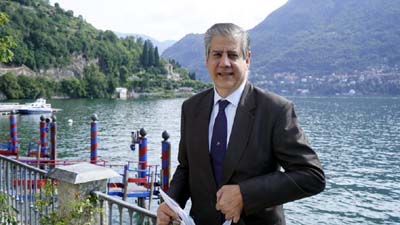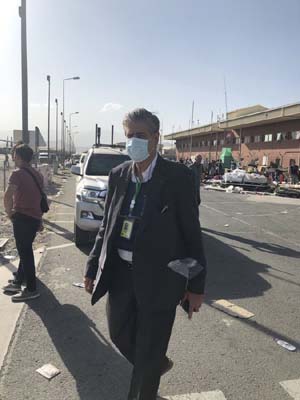
The West must speak to Pakistan: Ambassador Stefano Pontecorvo
Newswire
An interview with Ambassador Stefano Pontecorvo, Senior Civilian Representative of NATO in Afghanistan, former ambassador to Pakistan and key figure during the Kabul evacuation.
Ambassador Stefano Pontecorvo still has snapshots of the Afghan drama etched in his eyes. Senior Civilian Representative of NATO in Afghanistan since June 2020 and formerly Italian ambassador to Pakistan, he is the protagonist and the most recognizable face of the civilian evacuation from Afghanistan.
One month after the Taliban take over, Ambassador Pontecorvo draws up an assessment of the NATO mission and the future that awaits those who remain.
The twenty-year NATO mission. Was it all in vain?
There is no point in hiding it: the mission ended badly, as we never would have hoped for. This does not mean that it was all in vain.
Ambassador, the evacuation is over but there are still collaborators and informants of European forces on the ground who are risking their lives.
Is there a NATO plan to take them away? What will you do for them?
We will continue to do everything that’s possible to evacuate those who have a NATO connection and wish to leave the country, and their families. All in all, during the month of August, over 120,000 people were evacuated through an airlift created by several NATO countries.

What is preventing further evacuation operations?
The Taliban assure that those with papers in order can leave, including Afghans, but we know that is not the case. The Americans managed to evacuate their compatriots and Afghans with permanent residence in the United States after two weeks of intense negotiations. The Hamid Karzai International Airport is slowly returning to operation. Then again, some land routes are open. Crossing borders is difficult, but not impossible.
Is there a list of who is left?
The lives of those who remained in the country are not at imminent risk. Thanks to the support of NATO Headquarters, we retraced twenty years of the Alliance’s mission to contact those who collaborated with us, drawing up a list of those who were most immediately exposed. The others will also be flown out, whenever possible. NATO does not play with people’s lives.
Can we create humanitarian corridors for refugees?
First we must agree on the concept of a humanitarian corridor. If it is a free passage to reach the border, so be it. But one obstacle remains: whether to believe the Taliban’s promises. They are not happy to see a substantial part of the population leave the country, and it shows.
You know a key player in this crisis well: Pakistan. Can the West trust it?
The West can and must speak with Pakistan. It’s a NATO partner country that provides important logistical support in Afghanistan. Many of the women and children we evacuated in recent weeks would have remained in Kabul without the help of Pakistanis. Furthermore, Turkey – our ally – and Qatar – our partner – continue to make important contributions to bring the Kabul airport back into operation. For that, we are very grateful.
